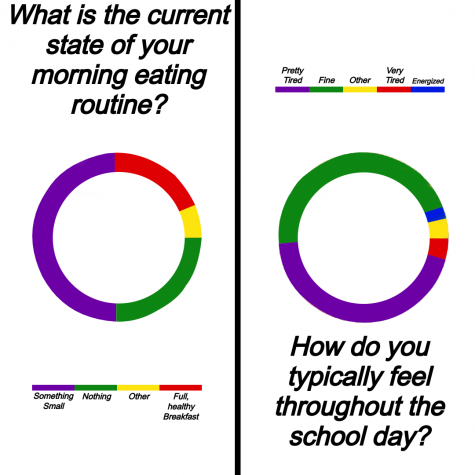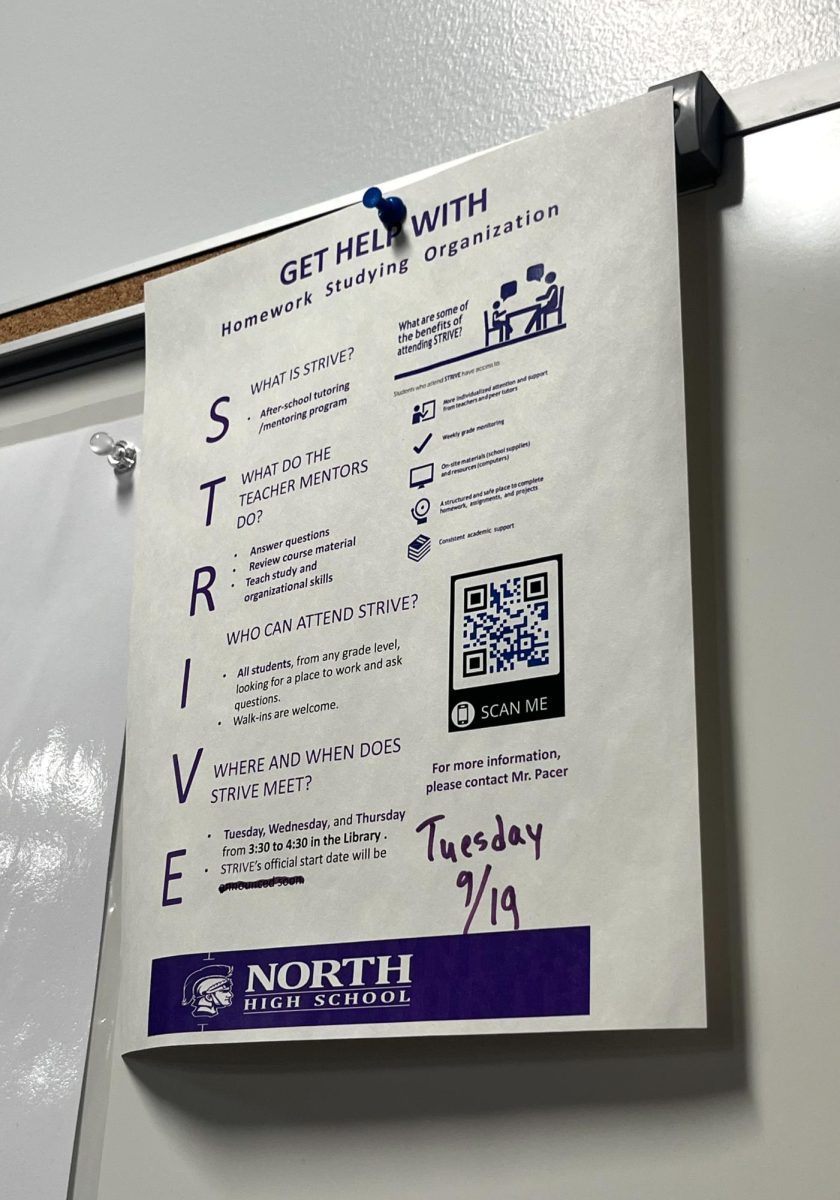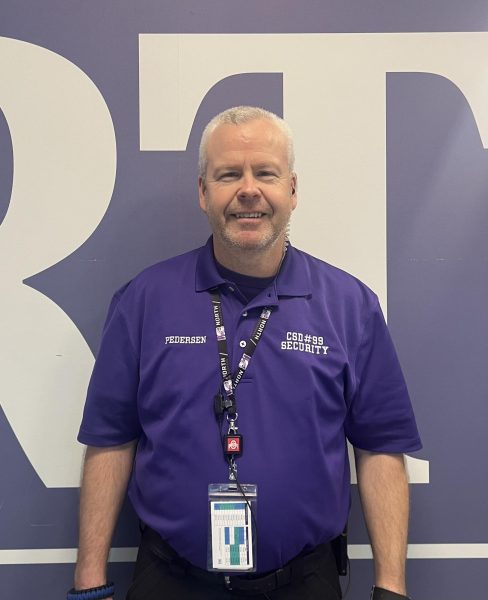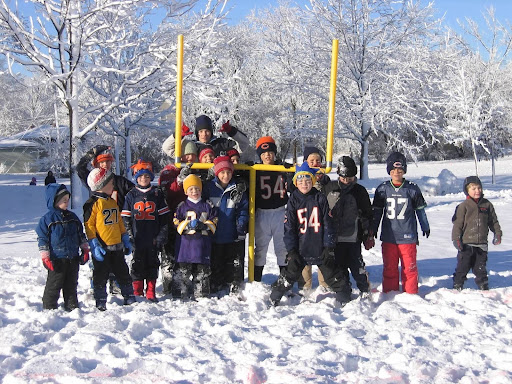Students’ Lack of Proper Nutrition Causes Problems
November 4, 2021
The saying “breakfast is the most important meal of the day,” originated as nothing more than a marketing slogan from Kellogg’s cereal corporation, but has since become a saying used by parents, teachers, coaches, and more corporations to hammer the point home. You need to eat breakfast.
Despite being the most important, breakfast is also the most difficult meal to fit in for many students. High school students have busy lives, and between waking up, being prepared, and actually transporting to school, nutrition can often get lost in the process. For sophomore Curtis Mysliewic, it has to do with sleep,, “if I get up late and need to do other things for the day, breakfast doesn’t seem as important in the moment.” Mysliewic said.
This issue goes deeper than just one student. A poll of students regarding nutrition revealed that 25.5% do not eat anything in the morning. Nearly half of students said that they “typically eat something small on [their] way out the door.” While it is more effective than eating nothing, a small, single-faceted breakfast is still not adequate for high school students and what they have to go through in a day.

The poll backs this, too. In the same poll, 49.3% of participants revealed that they feel tired throughout the school day, including 4.3% saying they had “almost no energy.”
This is a problem that could seriously be negatively impacting student’s education.
Some students are doing enough for themselves when it comes to eating. Senior Julia Albert said that she consistently eats breakfast, and that she “[thinks] she [eats] good enough during lunch,” and feels “pretty energized throughout the day.” Albert also talked about her parents emphasis on having a balanced diet.
For the most part, however, Students’ attention is too devoted elsewhere for them to realize what could be an answer to many of their problems. Increased functionality throughout the day could be what they need to help improve their performance academically, socially, and athletically. However, for many students, improved nutrition could lead to deterioration in sleep.
Needs as far as nutrition are different for everyone, too. Sophomore Sofia Frankfater’s habits vary from a “big lunch” to not packing enough, leaving her “hungry and tired for the rest of the school day.” Frankfater added that “most days [she’s] really tired and sometimes [feels] like falling asleep.” Eating is crucial for Frankfater, as she noted that diabetes runs in her family.
While it does affect everyone, nutrition is especially important for student-athletes, a group that includes roughly half of DGN students. In order to contribute to their teams as best as possible, athletes need to be energized for both practices and competitions. Girls Track and Cross Country coach Matthew Maletich stresses the importance of nutrition to his runners, saying “low endurance levels can really impact an endurance athlete’s well being. There are times where we need to make sure that athletes are getting enough iron to assist their body’s processing of oxygen.”
Junior Leo Gartlan does an effective job of making sure that he is ready for every school day. “I always make sure that I’m fueled and ready to have the best day I possibly can.” Gartlan has been dealing with various injuries throughout high school, and it’s important for him to be in the best condition he can possibly be. “There are a lot of things I can do to ensure my health and this is a crucial one.”
For kids that don’t eat enough, there is a solution. Experts suggest that simply drinking water early in the morning can activate metabolism and flush out toxins that build up during sleep. Drinking water is another important way to improve functionality and health that students often omit. It is necessary throughout the school day, and doing so in the morning can significantly help improve productivity and efficiency at school.
Breaking up what you eat can also be beneficial, for example eating something small, like fruit, right before leaving, and then bringing another snack like a granola bar to eat after arriving at school. This way students can eat more in the morning and not take away much sleep time, if any.
Making minor changes like these may seem unnecessary to some, but can go a long way to help students feel better at school, and in turn improve grades, social interactions, performance in sports, and other various facets of everyday life.















